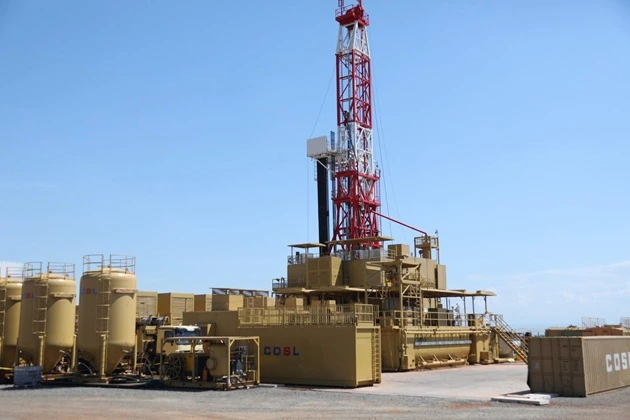Africa is home to massive oil reserves, representing about 7% of the world’s proven reserves, with major producers such as Nigeria, Angola, Algeria, and Libya. However, the continent suffers from a striking paradox. Despite this abundance of crude oil, the refining capacity remains insufficient, forcing many African countries to export their raw materials and import refined products at high prices.
This costly dependence limits local economic development and the creation of added value. However, some promising initiatives are emerging, such as the Dangote Refinery in Nigeria, which was inaugurated in 2023. It transforms the regional energy dynamic with a capacity of 650,000 barrels per day. In this line, Uganda is preparing to take a decisive step towards energy autonomy.
A Ugandan-Emirati strategic partnership

The Ugandan government has just signed a historic agreement with Alpha MBM Investments LLC, a company based in the United Arab Emirates, to construct its first oil refinery. This major project, estimated at four billion dollars, will take root in the western region of Graben Albertine, more precisely in Kabaale in the district of Hoima.
The agreement establishes a precise capital distribution: Alpha MBM Investments will hold a 60% majority stake, while the remaining 40% will go to the state-owned Uganda National Oil Company. Visit. A F R I N I K . C O M .For thge full article. This structuring allows Uganda to retain a significant interest in this strategic project while benefiting from Emirati expertise and capital.
A modern infrastructure to transform the local economy
Ugandan President Yoweri Museveni stressed the transformational importance of this initiative during the signing ceremony: “Through this oil refinery, it will also be a question for Uganda to produce and export refined products instead of importing them. We must stop exporting raw materials and add value to everything we produce.”
The industrial complex will have a processing capacity of 60,000 barrels per day, a significant volume for a country taking its first steps in oil refining. The project is not limited to the refinery itself but includes the construction of a 212-kilometer multi-product oil pipeline. This crucial infrastructure will connect the Kabaale refinery to a storage terminal located in Namwabula, Mpigi district, thus facilitating the distribution of refined products throughout the country and potentially to regional markets.
This Ugandan initiative illustrates a growing trend in Africa: the desire to develop local refining infrastructures to capture more value from the oil chain and reduce dependence on imports of finished products.